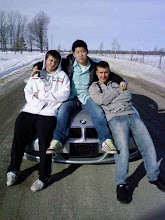
Diversity is important because it’s something that affects everyone. It’s more than just gender, ethnicity, sexual orientation or racial classification. It involves every single aspect of each individual, culture, and background. So as the years go by and our society becomes more diverse, how come our entertainment doesn’t? It seems like we are backtracking and changing what reality really is to what producers want it to be. It’s disappointing to see that TV is still lacking diversity but good that progress is being made. In our recent class study we found that some races are being greatly over represented or greatly under represented. Referring to the “TV’s Great Black Hope” article, we found:
Race/TV Percentage/US Population/Over-Under Representation
White/74.72%/66.2%/+8.52%
African American/13.92%/12.9%/+1.02%
Latinos-Hispanic/6.38%/15.2%/-8.82%
Asian/4.5%/4.5%/=0.00%
American Indian/0.42%/1.00%/-0.58%
As you can see there are still some big differences for racial representation on TV. “White” is being greatly over represented while Latinos/Hispanic is being greatly under represented. What we are seeing on TV does not match the reality we live in. There are improvements being made with 3/5 races being within a 1% difference gap of zero but how long will it take till all 5 races reach that gap? There is still a lack of diversity and the statistics of the shows do not match what society really looks like. Even in our own personal findings for anime sitcom we found that racial representation was unequal. Compared to the 2007 US census we found that every group was under represented except for Caucasian.
 We watched many popular anime sitcoms like Family Guy, The Simpsons, South Park, American Dad, and King of the Hill and each one was still pretty “White”. We first need to get equal representation on TV so we can get rid of the “if” factor. Which means is each racial group even represented in the first place? Once we establish that then we can move onto the “how” factor. How is each culture, individual, race, gender, or age being represented? Are they being shown negatively or positively?
We watched many popular anime sitcoms like Family Guy, The Simpsons, South Park, American Dad, and King of the Hill and each one was still pretty “White”. We first need to get equal representation on TV so we can get rid of the “if” factor. Which means is each racial group even represented in the first place? Once we establish that then we can move onto the “how” factor. How is each culture, individual, race, gender, or age being represented? Are they being shown negatively or positively?Also in our own study, we found that certain racial groups were represented more negatively then others. We found that certain races would always play certain roles on TV. Latinos and Blacks would usually play a criminal part while a Caucasian would play everything else. There are many other stereotypes in TV, even involving gender. Many women on TV would be seen be seen as the traditional homemaker while the man would support the family with income. This is what our ground found for racial roles:

In the media we have been influenced to think that all Arabs are terrorists who want to spread fear and see America burn. What about Aboriginal People who are always portrayed as criminals, violent, rapists, deceptive, lower intellect, or as passive and full of childlike obedience? It doesn’t help that Hollywood is always backing up Washington’s policies. The media only portrays half the side of the story and are very careful to choose the words they use like “evil”, “dangerous”, “savage”, etc which always gives a negative connotation. There is still too many stereotypes and discrimination on TV. Many ethnic groups are still not fairly represented and even misrepresented. Obviously when someone else is painting the picture about you in a negative way you are going to feel bitter and angry. You feel cheated and wonder how can you fix this? Is this how others view me as?
North America is mostly influenced by the media and believes that what they see on TV is real life. We get confused between reality and reelity. It’s time to start creating equality on TV so that all races can relate to the TV shows.
According to Fall Colors, they found that prime time diversity increases as evening progresses, with the 8:00 hour being the least racially diverse, and the 10:00 hour being the most racially diverse. This shows that they put the more racially diverse shows late at night because no one is watching. Some things that producers can do are to just simply make TV shows more diverse. Give a different racial person a primary role instead of secondary characters. Don’t go with the stereotypes that are already out there. Just simply put reality into TV shows. It matters because “more than 10 million children, on average, watch television from 8-9 o’clock in the evening? The “family hour,” as it has been called, is the most popular time for children to watch television, yet it remains the least diverse.” All of these children are growing up watching TV with no racial role model. That is why TV diversity matters.
We should not undermine our worth by comparing ourselves with others. It is because we are different that each of us is special. This is what we need to show on TV.

No comments:
Post a Comment